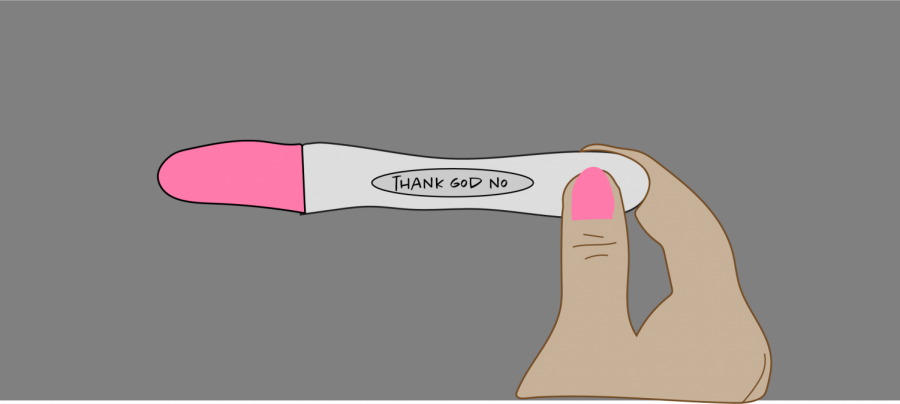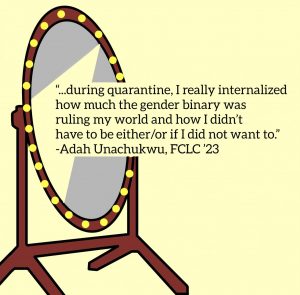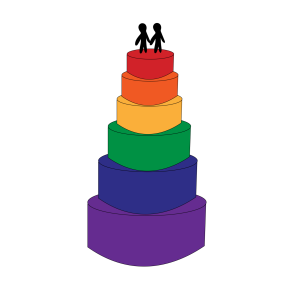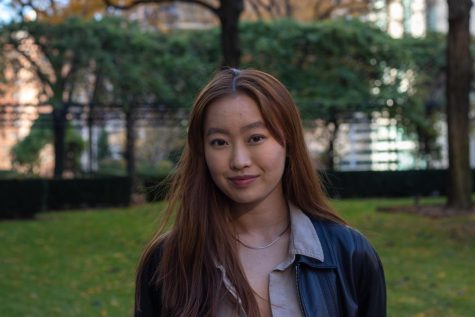Stop Asking Me About Kids
Women are not required to have children
February 25, 2021
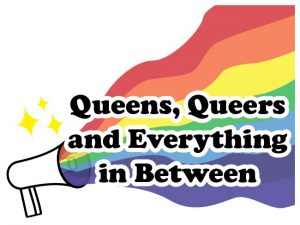 My roommates have baby fever. Badly. One of them daydreams out loud about what it would be like to be a mother in 10 years, cooing over photos of celebrity babies on her phone. The other worries about her boyfriend’s uncertainty toward kids, hoping he will come around one day because as much as she loves him, she could not give up motherhood.
My roommates have baby fever. Badly. One of them daydreams out loud about what it would be like to be a mother in 10 years, cooing over photos of celebrity babies on her phone. The other worries about her boyfriend’s uncertainty toward kids, hoping he will come around one day because as much as she loves him, she could not give up motherhood.
My third roommate has a list of baby names in a password-protected Notes document on her phone — each name is unique, carefully crafted so that no other child in the world would have that name. She’s wanted to be a mother since she was eight, when she attempted to adopt a child online after her parents refused to give her baby siblings.
The topic of babies comes up quite a bit in our apartment and whenever it does, I put in my headphones and pretend I cannot hear their conversation. They turn to me anyways: “What about you, Jess?” I don’t have an answer, just an awkward little lump in my throat.
A child does not ask to be born, so it is not fair to a child to exist out of obligation and not love.
Family Stigmas
During the very first discussion for my Transatlantic Modern Women class this semester, my professor asked us, “What is not illegal but feels illegal due to societal standards?”
After a few seconds of uncomfortable Zoom silence, I went first: “I don’t want children. That is technically not illegal, but everyone expects me to be a mother one day.” My mom has already decided I will have two kids, a boy and a girl. Plus, I’m gay and an only child, so it feels especially illegal to not pop out a few kids, by age thirty on top of that.
I hate that pressure because I don’t believe parenthood is something you can force yourself to simply get on board with. It is a choice, a personal choice, and should be treated as such. I’m a firm believer that unless the thought of not having children of your own absolutely devastates you, you should not be a parent; this applies to everyone, regardless of gender or marital status.
Kids Are a Lifelong Commitment
Unless you know you will love your child no matter how they are born or who they grow up to be, you should not have kids. Bringing a child into the world is a lifelong commitment. A child does not ask to be born, so it is not fair to a child to exist out of obligation and not love. Personally, I have never dreamed of having a baby, so it would not be fair for me to be forced to bring one into the world.
Babies have always freaked me out. I cannot understand the connection between infants and the word “cute.” My roommates also laugh at me for subconsciously referring to babies as “it” instead of “him” or “her” or “them.” It’s an honest mistake, I promise.
It’s as if everyone is convinced that time will do the trick — sooner or later, I must warm up to motherhood.
Toddlers and older kids have their moments. At the end of high school, I worked with some kids that I actually became quite fond of. And, of course, I find it heartwarming when people are good with kids. That still does not mean I want any of my own.
Whenever people ask, I just say, “I don’t think I want kids, but maybe that will change one day.” I do that because before, when I’ve just flat out said, “I don’t want kids,” it’s usually responded with, “Well, you never know, you might want them when you’re older.” I can feel people not only thinking that I will definitely change my mind eventually but also hoping I will, as if my ideas of my future family are any of their business. It’s as if everyone is convinced that time will do the trick — sooner or later, I must warm up to motherhood.
As much as I hate it, I do it to myself too — guilting myself into staying open about the topic of kids. If I’m being really honest, I stay open to it because I’m afraid that sticking to my own intuition will rob me of some sort of conventional happiness and I’m not sure unconventionality will bring me more happiness.
Do Kids Always Equal Happiness?
The happy housewife fantasy, as Sarah Ahmed discusses in “The Promise of Happiness,” sold the idea that women are happier being housewives as a way of keeping them in an oppressive role. To a certain extent, we have all internalized this fantasy. It is hard not to question if avoiding motherhood will be wasting my so-called potential as a woman.
The happy housewife fantasy and the differentiation in the phrasing of questions refer to motherhood as an obligation.
Also, I tell myself, it’s far too early to make a decision. Twenty is too young to be asked these questions. I’m a sophomore in college; I should not be expected to know these things about my future. Motherhood seems incredibly irrelevant at this age. Yet somehow, it comes up fairly regularly.
When it comes up, the question is always, “How many kids do you want?” or “When do you want to start having kids?” Both these questions assume that I want kids. I rarely notice people asking the boys my age about kids. If they do, the question is “Do you want kids?” Implicit here is that men have the freedom to choose parenthood, while it is expected of women.
Both of these things, the happy housewife fantasy and the differentiation in the phrasing of questions, refer to motherhood as an obligation: While things are certainly changing, women are still expected to play a larger role in raising kids. We still confront subtle and not-so-subtle indicators that women are naturally better parents than men.
The Biology Argument
Whether foundational biological differences between men and women exist or not, it is not an excuse for treating motherhood as obligatory but fatherhood as something men can opt out of at any time.
Do a quick Google search, and you will find articles that base their arguments on biological essentialism, implying that fathers have less responsibility. However, whether foundational biological differences between men and women exist or not, it is not an excuse for treating motherhood as obligatory but fatherhood as something men can opt out of at any time. This then helps explain why in the United States, single parents are disproportionately mothers and why maternity leave is more common than general parental leave.
Are women really “naturally” better with kids, or are we just constantly pressured into putting other people’s desires above their own?
I know that the idea of having kids does not make me happy. I also know that I have been sold the idea that kids are a source of happiness, and that I will be missing out if I don’t have them. Some days, I genuinely do not know where I stand. So, for now, I’m happy knowing that all my best friends will let me be the cool aunt to their children. It’s a happy middle ground, really — I will shower their kids with love and affection, but I won’t have to commit to raising my own.
In the meantime, please stop asking me how many kids I want or when I plan on having them. If you’re going to talk to me about kids at all, which I advise against, at least start with whether I want any in the first place.

